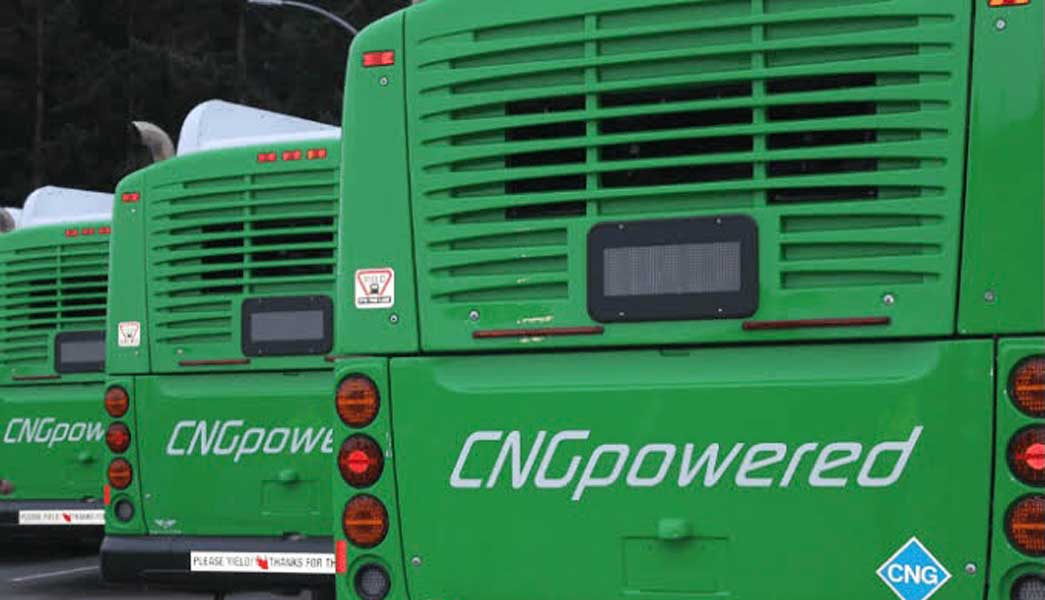Nigeria’s Carbon Tax: Another SAP Dressed In GreenYoung Ozogwu

Nigerians are already carrying a load that would break the back of any people. Fuel subsidy is gone, electricity subsidy is gone. Even the Compressed Natural Gas (CNG), once promised the masses as the cheaper alternative, have been yanked off too.
Value Added Tax they nudged up from five per cent to seven per cent, they now want to push it to 15 per cent. All these have driven price of food and basic goods through the roof. The roads that should link farms to markets are broken craters. Yet in the middle of this storm, the government has agreed to introduce an IMF-backed carbon tax, otherwise called fuel tax.
On paper, it sounds noble. Tax carbon to protect the environment, fight climate change, and raise revenue for the state. But for Nigerians, who are already drowning under endless economic burdens, this new tax is not green policy.
It is another IMF trap designed to squeeze the poor.
Nigeria as a country is not the problem. We contribute an insignificant < 0.35 percent of global carbon emissions. Compare that with the United States, which produces about 14 percent, China nearly 30 percent, and India around 7 percent. These are the real polluters.
Yet these countries either resist or delay carbon taxes because they know the political backlash it can cause. Meanwhile, Nigeria a country where more than 40 percent of citizens have no access to electricity is imposing this tax on its people.
The irony is painful. America is still driving millions of gas-guzzling SUVs. China is building coal plants to power its industries. India depends heavily on coal. But Nigeria, where families cook with firewood and businesses survive on petrol or diesel generators, is now told to pay for “carbon.”
This is not climate justice. It is climate hypocrisy and Nigerians know the difference!
The reality on ground doesn’t make sense. A bag of rice is over ₦80,000 in a country where the minimum wage is a meagre ₦70,000. Fuel in many parts of Nigeria, outside Abuja and Lagos sells for over ₦1,000 a litre.
Electricity tariffs have jumped by more than 200 percent for those who are on prepaid meter and worse for those who are on estimated billing. Small and medium business are shutting down because they cannot afford diesel for their freezers.
Farmers are abandoning crops because the cost of transporting them on terrible roads is more than the profit they will make at the market. Mechanics, keke riders, and food sellers are suffocating. Add a carbon tax to this misery, and you are not saving the planet. You are burying Nigerians alive.
The injustice becomes clearer when you compare Nigeria to others. This country generates less than 5,000 megawatts of electricity for over 200 million people. South Africa, with a population of only 60 million, generates more than 58,000 megawatts. Egypt, with about 112 million people, generates over 60,000 megawatts.
Nigeria’s leaders, instead of fixing power and expanding access, are more concerned with pleasing the IMF. And history is repeating itself. In the mid-1980s, the Structural Adjustment Programme devalued the naira, removed subsidies, and promised growth. What Nigerians got was poverty, unemployment, and the collapse of local industries.
The carbon tax is simply SAP dressed in green.
If this tax were truly about saving the environment, there would be a plan for affordable alternatives. Where is the cheap solar power to light up rural communities? Where is the affordable cooking gas that will stop families from cutting down trees?
Where are the safe roads that would cut fuel waste and reduce transport costs? Where is a functioning public transport system that would allow people to leave their cars at home? Without these, a carbon tax is not about the environment. It is about raising money at the expense of those already suffering.
The global order is full of double standards.
The biggest polluters are allowed to continue, while poor nations are told to pay the price. If the IMF were sincere about climate justice, it would force the big polluters to act first. It would give grants, not loans, to help Nigeria transition. It would transfer technology so the country can build its own renewable capacity. Nigeria has leverage.
With over 200 million people and vast resources, we should be negotiating from strength. We should not be reduced to a laboratory for IMF experiments. But that requires leaders with spine, not puppets who take instructions from Washington.
Nigerians are not blind. We can see the game being played. While we are told to tighten our belts, our leaders loosen theirs. While IMF officials talk about fiscal reform, ordinary people are burying their dreams. A carbon tax, piled on top of fuel subsidy removal, electricity tariff hikes, CNG subsidy removal, VAT increases, and broken infrastructure, is not reform. It is cruelty.
The truth is simple: Nigeria’s problem is not carbon. It is corruption, weak leadership, and blind obedience to external masters for self-interests. Until Nigerians rise to demand accountability, we will continue to pay for the greed of our elite and the hypocrisy of the global powers they bow to. A carbon tax, without justice, is nothing more than another IMF trap. Nigerians must reject it with one voice.
Young Ozogwu writes from Abuja, Nigeria.
Nigeria’s Carbon Tax: Another SAP Dressed In GreenYoung Ozogwu is first published on The Whistler Newspaper





